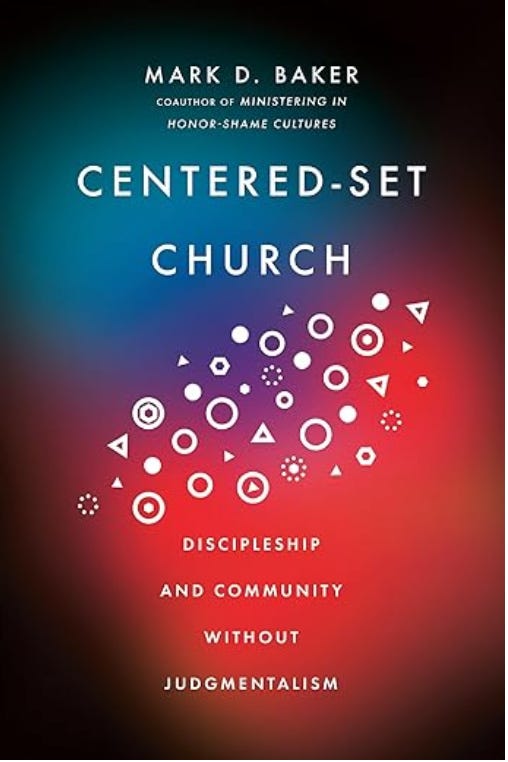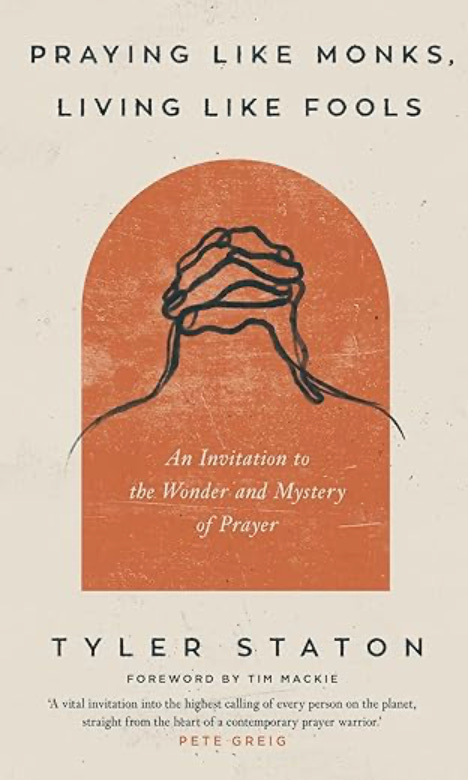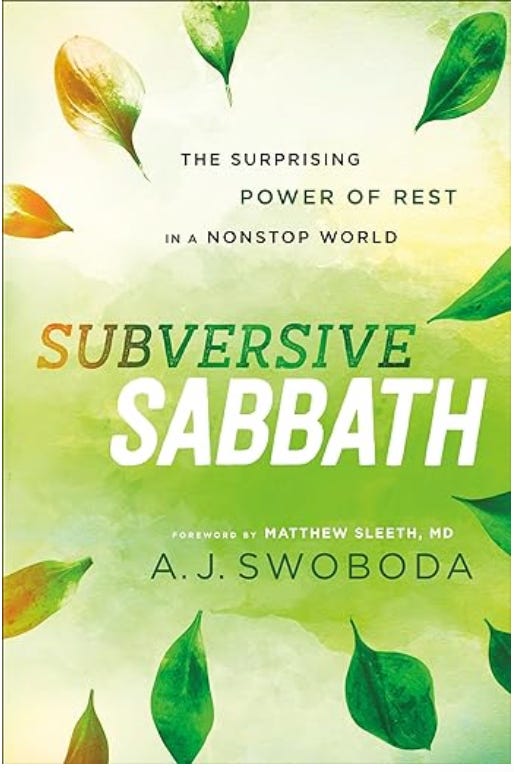"Christians don't simply learn or study or use Scripture; we assimilate it, take it into our lives in such a way that it gets metabolized into acts of love, cups of cold water, missions into all the world, healing and evangelism and justice in Jesus' name, hands raised in adoration of the Father, feet washed in company with the Son."
― Eugene H. Peterson, Eat This Book: A Conversation in the Art of Spiritual Reading
"Spiritual reading, for most of us, requires either the recovery or acquisition of skills not in current repute: leisurely, repetitive, reflective reading. In this we are not reading primarily for information, but for companionship. Baron Friedrich von Hügel once said it was like sucking on a lozenge in contrast to gulping a meal. It is a way of reading that shapes the heart at the same time that it informs the intellect, sucking out the marrow-nourishment from the bone-words."
Eugene Peterson, Take and Read
Welcome to Issue #79 of the Lectio Letter. This members-only newsletter is (normally) filled with music, film and food suggestions, links, and an article written by yours truly. But this time it’s my yearly review of (almost) every book I read in 2023.
Why Read?
This year, just as I did in the introduction to last year’s list, I am reflecting on why we read.
Eugene Peterson’s quotes above put it well, we read in order to become. We read in order to make friends who know something we don’t, we glean from it and incorporate it not just into a new way of thinking, but at best, a new way of living.
Reading fast or slow, many or few, is not the point. The point is to see some part of the world God has made from a new vantage point.
Our friend and Writer Chris Hall says that eternity with God will be one “Wow” after another and in some small way we begin that journey of unfolding wonder by discovering how God has worked and is working in the world now.
Reading is one of the easiest ways to discover a new standpoint from which to say “Wow” at the beauty, pain and wonder that is present in our world. Another way to think of it is that you’ve gathered some very interesting people into a single room who comes from different times and places and you get to hear what they think is most important about life.
At the end of last year, we swung into Daunt books pictured above (although I didn’t take this particular photo), and it was a similar feeling. Lots of interesting possible discoveries to make… it’s really quite intoxicating.
That being said, I know that most of us don’t have the leisure to read all of the books that we might want to and one of my ‘tricks’ in reading is to not read books but reviews!
I manage to stay fairly on top of what’s happening by keeping an eye on Englewood Review of Books, Bob on Books and several other review sites and normally end up buying one or two that I really think will be of interest.
Support the Lectio Letter
We are now heading into the 5th Year of the Lectio Letter. I started this newsletter as a creative way to help fund my buying of books that contribute toward the teaching and training we do as a part of the Centre for Christian Formation, helping deepen and disciple those engaged in the work of ministry and mission.
Becoming a member not only supports the work we do, but in return, you get two articles a month, alongside book, movie, music and recipe recommendations and access to all 78 of the previous issues.
I’m giving the biggest discount, 50% off on a yearly membership for the first 10 people who join in January!
If you’re already a member, I’m really grateful for your support and maybe you’d consider giving a gift subscription at 50% off too… after all, what’s better than a gift in January ;)
Whether you become a paid subscriber or not, I’m very grateful to each of you who read and respond to this newsletter.
Support Our Work Training those Working in the Middle East and Europe
While the Lectio Letter goes some way towards helping cover the cost of buying books that building curriculums to train cross-cultural missionaries requires, this year we have a new project that you can support.
With Friends who already work in this region, we are launching Teleios for Europe and the Middle East. Our goal is to train 30 young leaders working in this region to deepen their own discipleship and sustainability as well as improve their skills and understanding as they seek to disciple others in these regions.
We are hoping to raise £9000/$11,000 to cover our costs to travel to three locations and support these workers in 2024.
If you’d like to be a part of that, you can find ways to give here.
For more information on the course, head to https://teleios2024.com
Introduction to the 2023 Book Reviews
Well, This is the fourth annual book review issue (read 2020, 2021 and 2022 here)
Last year I mentioned my book organisation is not what you'd call OCD. This year as you can see I've added a few more and am really testing the physics limits of how many books can be stacked on a desk. I need to build or buy another bookcase, Maybe 2024 will be that year?
As I've mentioned in previous years, what we are working on or preparing for normally sets my reading schedule, but in the last few years I've said I wanted to read some more fiction and looking through the list this year I've managed to do much more of that than in previous years and in fact, a fiction book ended up in the Top 3! Although my goal to read some history and politics gained no traction this year.
There are many ways to read a book and I'm less and less concerned about reading every book from cover to cover. Some books have fairly stand-alone chapters, others start well and bleed out and frankly deserve to be abandoned.
Below I've only listed the books I read from start to end but there were many others that I flicked through, or used parts of in preparing curriculum. Some devotionals, poetry and sermon books that deserve mention are; Every Moment Holy (which usually accompanies our evening meal), Means of Grace, a selection of sermons by Fleming Rutlege, and Sounding the Seasons by Malcolm Guite.
I read through sections of several Lesslie Newbigin’s books, Faith for Exiles, The Other Half of the church, Gorman's Romans Commentary, Tom Wright’s Broken Signposts and Michael Birds Evangelical Theology, and Wright and Bird’s The New Testament and its World.
Do you have a book you read this year that you thought was fantastic? Let me and others know which one by leaving a comment…
Also, if you are reading in Gmail, this email will likely be clipped due to its length. If you want to read it all, scroll to the bottom and then click “View entire message” to see it all. You are not getting it all if you don’t see my signature at the bottom.
Top 3 books of 2023
1. Everything Sad is Untrue - Daniel Nayeri
For the last few years, I said I had an ambition to read more fiction and while Nayeri's book is a stylised autobiography I never expected it to be my favourite book of the year.
Nayeri tells the story of being raised by his Iranian mother who flees to the US after being persecuted for leading an underground church. While the themes are extremely serious (domestic abuse, persecution, fleeing to another country) Nayeri narrates the entire book as his 7-year-old self.
What unfolds is an incredible mixture of absolute hilarity as he navigates friendships, bathrooms and food in his new culture alongside profound reflections on the nature of faith and of family. I was immediately tempted to buy 10 copies and give them out.
“A god who listens is love. A god who speaks is law. At their worst, the people who want a god who listens are self-centered...And the ones who want a god who speaks are cruel. They just want laws and justice to crush everything...Love is empty without justice. Justice is cruel without love....God should be both. If a god isn't, that is no God.”
― Daniel Nayeri, Everything Sad Is Untrue
2. Biblical Critical Theory - Christopher Watkin
Christopher Watkin is a Yorkshire-born, Australia-based, philosophy professor who has written a book which attempts to unpack a cultural theory through the bible.
Early on he explains that a critical theory is simply a lens applied to understanding the world and that, in its own way, the bible offers the lens for Christians.
Throughout the book, he takes numerous issues in cultural life and argues that while our culture offers us two options (such as Justice or mercy) the strength of the biblical view is that it 'diagonalises" or connects those two seemingly opposed ideas.
The book is densely packed with various live cultural debates which are connected to biblical stories, theological understandings and insightful commentary on philosophy. This would be the perfect book for a book group that wanted to work through something in the realm of a 'biblical worldview' even though early on Watkins explains the limitations of a worldview approach.
3. Centered Set Church - Mark Baker
Mark Baker was a missionary in Honduras, then a Campus minister and now a missions lecturer. In this book, he explains a concept brought into mission, discipleship and evangelism which was adapted from mathematics by missiologist Paul Hiebert. I wrote an article this year based on the book which you can read here, but it contrasts the nature of discipline communities as bounded, centered or fuzzy in ways I think are very helpful.
The Rest of the books I read in 2023
—Spiritual Formation—
Invitation to Solitude and Silence - Ruth Haley Barton
Ruth Haley Barton wrote this book to advocate for the practices of Silence and Solitude and shares openly and practically about the challenges you can expect to meet in the beginning. Ruth Haley Barton has become popular because she is eminently practical when compared to other (re)pioneers of the tradition of formation such as Dallas Willard and Richard Foster. Where the book lacks is in-depth and careful exegesis but as a practical preparation for a silent retreat, it is excellent.
Praying like Monks, Living like fools - Tyler Staton
Tyler Staton is the leader of Prayer 24/7 in the U.S. and became the leader of the Bridgetown church in Portland which was founded by John Mark Comer. This book is a real expression of the two streams of charismatic and contemplative finding an accessible introduction to a life of prayer. Staton's vulnerability and personality make the book shine and well worth a read
Lent -- Esau MacCaulley
I have read quite a bit about lent and written about 50,000 of my own words on it through my capstone project. I had heard many good things about Esau MacCaulley and yet, maybe inevitably I was underwhelmed by this short volume.. MacCaulley is a convert to liturgy and does a good job communicating the transition. This is a short book and a good introduction to Lent but lacked some depth in explaining the history of the season.
The Word in the Wilderness -- Malcolm Guite
I have begun reading a little more poetry this year and I dipped into these sonnets through the different seasons of the year. It's not a book you read all in one go and of course, as with all volumes of poetry, some are better than others. But for the uninitiated in poetry (like me) Guite's work is engaging and accessible.
The Deeply Formed Life - Rich Villodas
Villodas is amongst a younger generation of US pastors and communicators making spiritual formation mainstream. As a communicator, he stands alongside John Mark Comer, Tyler Staton, and Jon Tyson in bringing formation to the fore in a new generation. Having read much of this type of popular-level work before there was little new to me in this book, but its strength (and perhaps in ways for an international audience its limitation) was Villodas' experience pastoring a very multicultural church and reflecting on justice in the U.S. context.
Subversive Sabbath -- AJ Swoboda
For the last few years, I've tried to have a 'sabbath' book to read on Sundays. Swoboda is a writer and thinker I enjoy and many parts of this book shine. Despite having been a pastor and now a professor (his account of that transition is one of the strongest parts of the book), his academic background is the connection between ecology and theology. He spends about a third of the book making these connections which felt unexpected, and interesting but also took up more of the book than I found helpful. If you're interested in Sabbath I still think Lauren Winner's Mudhouse Sabbath and Abraham Joshua Herschel's book are my top picks.
Sacred Fire -- Ronald Rolheiser
This might be the third or fourth time I've read this book. It continues to speak to me. In it Rolheiser unpacks his framework for the three tasks of life; to build one, to give it away and to give our deaths away. He has profound insights on the transition of an early life stage into the 'middle years'. Perhaps what makes the book so engaging is how, as a Catholic, he is writing in a different 'key' to much of the evangelical world and yet in most places very much in harmony with it.
The Word within the Word -- Malcolm Guite
I have been so impressed with Malcolm Guite's poetry that I was intrigued by how he would articulate the task of theology. He didn't disappoint in this slim volume which reflects on the nature of God being one who reveals himself to us.
How to be (Un)Sucessful - Pete Portal
Pete works in a community in Cape Town called Manenberg and reflects here on the seemingly insatiable desire we have for success. In a series of well-written chapters, he convinces us that the way of Jesus rarely aligns with the kind of success we imagine and that attending to the people and places we find ourselves in will be the most fruitful use of our lives.
Loves Endeavour Love's expense - WH Vanstone
This book is part autobiographical, part theological, telling the story of Vanstone's experience of becoming an Anglican priest and being sent to a church plant in a suburb that 'didn't need God'. He unpacks the nature of love as relinquishing control and not forcing what you love to become what you need it to be.
Letters to a Young Pastor - Eric and Eugene Peterson
A view into the warm connection between Eugene Peterson to his son, who as the title suggests is a pastor. While plenty of personal interaction is included, the gold of the book is Peterson's reflections on the modern industrial religious complex. Peterson speaks candidly and sometimes even cantankerously about the managerial corporate adaption of the pastoral vocation. In that way, the book is a beautiful re-pristination of a vision for pastoral ministry.
— Biblical / Practical Theology —
The Crucifixion - Fleming Rutledge
This is female Episcopalian preacher Fleming Rutledge’s magnum opus. It took over 20 years to write and will continue to be a genre-defining treatment of the theology of crucifixion. It is not for the light of heart at over 700 pages but it is an excellently written, deeply scholarly and simultaneously full of devotional passion. She comprehensively surveys the major motifs that the bible offers for interpreting the work of Jesus on the cross.
Seven things I wish Christians knew about the Bible - Michael F Bird
Australian Theologian and New Testament scholar Michael Bird is a rare thing; a renowned scholar with a great sense of humour and a desire to write accessibly for people in the pew. He runs through his seven points; 1. how the Bible was put together; 2. what "inspiration" means; 3. how the Bible is true; 4. why the Bible needs to be rooted in history; 5. why literal interpretation is not always the best interpretation; 6. how the Bible gives us knowledge, faith, love, and hope; and 7. how Jesus Christ is the centre of the Bible. It's a great book to read for those wanting to step past the cliche evangelical affirmations while remaining committed to an evangelical high view of scripture.
Evangelicalism: A Very Short Introduction - John Stackhouse
Stackhouse weighs in on a much-debated discussion about what defines evangelicalism. Much of the book is dedicated to reminding readers that the use of evangelical as a particular kind of voter in the US is a novel and dishonest adaption of a term that has a real history and that many of its adherents are non-western. There is a section on pragmatism in evangelicalism that was particularly eye-opening to me.
— Philosophy / Cultural Theory —
Alienation and Acceleration -- Hartmut Rosa
In this short book philosopher, Hartmut Rosa explores how capitalism has worked to accelerate life and the result has been alienation, or more simply disconnection. We increasingly feel disconnected from life, relationships and purpose and need to recover a sense of connection with the world around us in moments he calls resonance.
The Burnout Society - Byung Chul Han
Han follows in some of the same footsteps as Rosa but focuses on the historical transition from being a society where our lives are defined by the 'shoulds'; duties, responsibilities etc. to 'coulds' possiblity, choice and freedom. He argues that the overwhelming pressure created by constant choice and self-invention leads to becoming detached, depressed and unfulfilled.
Introducing Radical Orthodoxy - James KA Smith
James K A Smith has become known for "making Augustine cool again" through his popular-level books "You Are What You Love", "How to Inhabit Time" and "On the Road with Saint Augustine" but this book is an introduction to a (loose) school of thought within theology called Radical Orthodoxy.
This is dense philosophy and while it is meant to be a primer on a movement with some critique it is particularly useful in understanding some of the underlying motivations in Smith's own work. Through it, you see why Smith has focussed on the language of liturgy and his critique of Christianity as a collection of 'ideas' rather than aesthetically moved affections.
Churches and the Crisis of Decline - Andrew Root
Root adds to his long list of "secular age" series and this time (much to my own interest being a keen reader of Barth when I was in university) he takes on the early formation of Karl Barth as a pastor/theologian and argues that while the crisis that most church leaders experience is the crisis of a lack of relevance to the culture, the real crisis Barth discovered was a God who speaks and intervenes in the world. This crisis initiates the end of a 'business-as-usual' religious model and requires a deep attentiveness to where and how God is moving in the everyday life of a church community.
— Fiction —
Piranesi - Susanna Clarke
This was my first leap into fiction for 2023 and it was in its own way a captivating one. The book begins in a seeming fantasy of endless rooms of an abandoned and tide-flooding city of a building with few clues to its origins as its narrator and main character seem to be struck by some kind of amnesia. As the book unfolds (without ruining a twist) the place has a much closer connection to our 'real' world.
Remembering - Wendell Berry
For the last few decades, Wendell Berry has been writing stories based on the lives of the fictional town of Port William. The residents of this town and the surrounding farmlands are affectionately named as a "membership". Throughout the novels, even though each one focuses on a different family or character (though they all intersect each other) Berry's own convictions around the importance of place, and the rebuke of economic and technological systems that bring the demise of these "membership" style communities are clear.
Remembering is perhaps the darkest of these works of fiction as it deeply enters the psyche of Andy Catlett who has given his life to farming and then loses his hand. The book encompasses his experience of just one day but captures Berry's opinions on the change in farming practices, the dehumanising effects of urban environments and the importance of small communities called home.
Nathan Coulter - Wendell Berry
This story focuses on the Coulter family and the intergenerational connections that span a changing agricultural world. It is an excellent reflection on the nature of a traditional agrarian lifestyle that is all but lost in our modern world and the family relationships that develop in contexts of hard work, love and a commitment to place rather than "success".
Hannah Coulter - Wendell Berry
This is a novel written later in Berry's life and is told from the perspective of Hannah Coulter who goes on to marry Nathan after losing her first husband in the war. She is overseeing the demise of Port William as it was and the book has some beautiful sections reflecting on becoming at peace with change and loss.
Jayber Crow - Wendell Berry
Jayber Crow is perhaps the best-known and longest book in the Port William series. It charts the life of Port William's barber from his tragic upbringing to a rehabilitation of sorts as he and his simple barber shop become a kind of town square for the many (and mostly male) characters in Port William. The book reflects on the nature of fading faith as Crow begins in seminary but has to leave with burning questions about faith. His New Testament Greek professor gives him the advice upon leaving;
"You have been given questions to which you cannot be given answers. You will have to live them out―perhaps a little at a time."
"And how long is that going to take?"
"I don't know. As long as you live, perhaps."
"That could be a long time."
"I will tell you a further mystery," he said. "It may take longer."
Jayber’s life becomes that journey as he wrestles with love, loneliness and the gift/burden of belonging to Port William's membership.
Silence -- Shusaka Endo
This novel is now considered a defining classic of Japanese literature but it is also a profoundly thought-provoking reflection on the nature of mission and issues of contextualisation of the gospel into a culture that has little in common with the historical centres of Christian faith.
If you’ve made it this far, then Well done! The next Lectio will be out in a couple of weeks time, full of music, food, reading and link suggestions along with an article from me on the decrease in religious faith in the UK, and should be slightly shorter than this one..
Grace and Peace,
That’s all for now,



































Hi Liam! Well done writing this! You have put a lot of work in putting this lectio together! And it is awesome to read a bit of what you have been reading. You have an incredible talent in writing and so happy you decide to write this letter every 2 weeks! Well done!